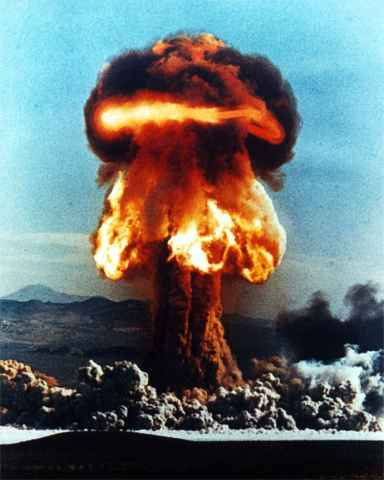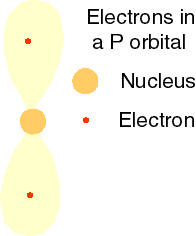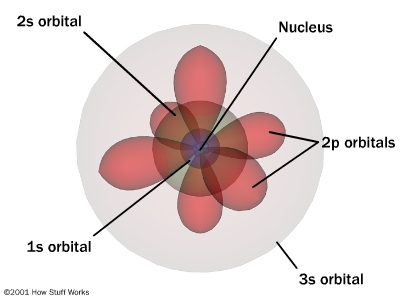
"All the world's a stage"
"The play's the thing
wherein to catch the conscience of the king."
William Shakespeare
What must have happened, given the motivation and the circumstances under which they met, when Werner Heisenberg met with his mentor Neil's Bohr in the spring of 1941, in Copenhagen, Denmark, during the Second World War?
 Why did Heisenberg wish to see Bohr, during World War Two, (1939-1945)
when Germany had occupied Denmark and all of continental western Europe?
Why did Heisenberg wish to see Bohr, during World War Two, (1939-1945)
when Germany had occupied Denmark and all of continental western Europe?
German armies stretched from Moscow to Bordeaux and from Salonica to Spitsbergen, so why did both men risk their comfort?
Michael Frayn asks in the play, repeatedly. (pp. 3 & 53)
two acts
Setting: The quantum revolution in physics begun by Planck, Rutherford, and Einstein among others had tragic consequences because of Bohr's, Fermi's, Strassman's and Hahn's untimely discoveries. Lise Meitner correctly understood the 1938-39 experiment that Hahn and Strassmann conducted stumbling upon nuclear "fission."
The action takes place in "ghost" land after the characters are dead and they try to recall the circumstances that provoked Heisenberg to contact his mentor Neil's Bohr, in Denmark at the institute where he once studied and in Bohr's home.
There, Niels Bohr, his wife Margrethe and Heisenberg re-enact the circumstances of their lost intimacy in an attempt to recover the memories that might reveal the hidden motives and simultaneously (complementarily?) uncover the deep sorrow of this loss and its larger universal meaning in light of moral limitations.
background: 1936-1945 The Second World War (Asia 1936 & Europe 1939) 1941-1945 (USA).
Wartime, Copenhagen was occupied as the Danish capital in 1940 and it was a seat of quantum mechanical research revolution of the 1920s and 1930s.
dateline: the tragedy of wartime research outcomes.
Date event interpretations
1900 Max Planck's quanta & discovery of a math. "constant." 1905 Einstein's special relativity & photo electric effect. 1915 Einstein's general relativity. 1921 Expanding universe; Hubble discovered by light shifting. 1924 Bohr accepts Heisenberg's graduate study proposal. 1924 Bohr and Einstein debate classical vs. quantum means. 1927 Heisenberg's indeterminate quality of electrons proposed. 1930s Neutron discovered & Fermi's use of neuron bombardment. 1932 Heisenberg's Nobel prize for quantum mechanics. 1938 Germany's occupies Czechoslovakia under the Munich Pact. 1938-39 Dec. to Jan. Hahn & Strassman's splitting of massive (uranium) atoms into two (less massive) by-products (barium + krypton), we call: Fission. 1940 Einstein's letter (written by Szilard) to FDR on the need for a bomb. 1941 Heisenberg visits Bohr to discuss physics. 1942 Dec 2, Univ. of Chicago's Stag Field stadium: a chain reaction. Fermi & Szilard 1945 May 8, VE Day; after Germany surrenders at Rheims, France. The detailed months of the crucial year 1945
Copenhagen (1998): first performed in London: debut 5/28/98
Copenhagen's dual importance in history and science research (p. 3)
(97) "Imagination... indeed is the substance of the play"
Thucididean Principle: "train of thought" is all we have; thus verisimilitude is essential as a test of the veracity of what is recorded. Peloponnesian War
 structure
structure
two acts:
This setting is already a remembrance -- almost like electrons in a cloud chamber-- we see the tracks not the settings.
The setting is to some extent a recollection of events in Bohr's living room, in Copenhagen, Denmark.
What did they talk about on that 1941 evening?
Act I: Background of this inquiry, the alleged event's importance, and three primal characters:
BOHR: -- "(Heisenberg) he was a very great physicist"
p. 4.
MARGRETHE: -- "father and son"
p. 5.
BOHR: -- theoretical physics does not "kill people"
p.10.
uncertainty of fission research,
p. 10
BOHR: -- "No one is going to develop a weapon based on nuclear fission."
p. 11.
BOHR: -- "Otto Hahn, he discovered fission after all."
p. 12.
Nazis undermined physics,
p. 18.
Fission explained, slow neutrons, fission fragments and U-235 (1%) and U238 (99%).
p. 33-35.
The relationship and the personal loss.
(Pp. 3-54)
Heisenberg: -- "I refused to believe it, when I first heard the news of Hiroshima." (45)
MARGRETHE: -- "that he can produce atomic bombs.... You tell them about plutonium." (47-48)
Heisenberg: -- "Once again the tiller slams over and Christian is falling." (53)
BOHR: -- "Once again he is struggling towards the lifebuoy."
II: the extended reflection on the events in Act One's importance. (Pp. 55-94)
Science as it affects the lives and the society it touches.
Duality of empirical inner history versus the affective, outer history.
Bohr's complementarity and Heisenberg's indeterminacy principles.
Three actors:
 Bohr (Electron), -- husband, quantum physicist
Bohr (Electron), -- husband, quantum physicist
Margrethe (Neutron), -- wife of Bohr; reality principle
Heisenberg (Proton) -- student 15 years Bohr's junior, son-like
climax: -- the turning point of the dramatic dialogue. BOHR: "Why didn't you do the calculation?"
(79-81 & 84-85)
Heisenberg: "I shatter the objective universe around you."
(p. 68)
Heisenberg: "All we possess is the present and the present endlessly dissolves into the past."
(p. 86)
Heisenberg: "We should need a strange new quantum ethics"
p. 92.
Aristotle's insistence that plays and poetry instruct us; possessing a didactic quality. Plato's insistence that there is more than meets the eye to the structure of heaven and earth. The didactic quality of an inherent tragedy when knowledge & experience clash. An inherent uncertainty on more than one level of experience. A systematic limitation cannot be circumvented (99)
The duality of knowing anything with any degree of certainty. The indeterminate character of history & human recall:
Not knowing ourselves. Not being capable of others sensing us. Not being capable of doing and thinking simultaneously. Not understanding simple motives and motivation generally.
Not witnessing what occurs without altering the observation.
A confusion of science with technical capacity to achieve the desired outcome. Confusing a means (fission reactor) with an end in itself (a fission implosion device).The Faustian Bargain struck by chemists and physicists in 1930s
(88) :Does one have the moral right to work?(89)
What had happened if Bohr would have asked "Why?"(90-91) the moral ambiguity of one who knows and acts on incompleteness:
personally -- Christian's accidental death.
socially -- the escape of Danish Jews by the resistance.
scientific -- research & formulations that allow technology.
Skiing as a metaphor, is more important than you may realize. (24-28)
The personal knowledge that allows Margrethe (the play's conscience and narrator) to explain that "you didn't understand the physics." (79)
Postscript: "a tangle of interconnected alleys" is how Max Born described quantum mechanics. (96)
What did Germany know and when did it know it?
WMD's : a little knowledge is a deranged thing.
MARGRETHE: -- "the great darkness in the human soul was flooding out." (p. 96)
"The evidence is confused and contradictory and making any sense of it involves balancing probabilities and possibilities almost as indeterminable as Heisenberg found events inside the atom."
Frayn, p. 112.
Could Germany have done so?
Frayn's answer is possibly (128-29),
I (Siry) think not.
Isotope (U235 [< 10%] from U238 [90%] ) separation and the mathematics to guide the costly refinement process is hard. From January to April 1945, US produced only several pounds of 90% or weapons grade U235 from two enormously costly ($ 250 K each) sites in Oak Ridge, Tenn. & Hanford, Washington.120 lbs. give or take (56 kg) a few grams of "critical mass" is a necessary, but not sufficient, ingredient for any fission implosion device.
1/3 of Germany's best and brightest scientists fled the continent from the Nazi's who banished them from research and teaching schools after 1934.
The year 1945
Lawrence Badash, Scientists and the Development of Nuclear Weapons. (New Jersey: Humanities Press International, 1995). pp. 23-24, 27-54.
The lead up to the discovery of fission Lise Meitner. In 1934, Enrico Fermi produced radioactive isotopes by neutron bombardment, coming to a puzzle only with uranium. There were several products; were any of them transuranic elements? Meitner drew Hahn and also Fritz Strassmann into a new collaboration to probe the possibilities. By 1938, the puzzle had only grown.
What did they talk about on that 1941 evening? The letter from Bohr to Heisenberg, circa 1957.
Master of Liberal Studies: Milestones of Modern Science, J. Siry, Ph.D.
Lightquantum "Fiat Lux: the role of light in redefining 20th century physics," last lecture/discussion 2006.
Ruth Moore. Niels Bohr: The Man, His Science, and The World They Changed. Cambridge, Mass.: MIT Press, 1985 [1966]. Fission pp. 248-285, Heisenberg's wartime visit to Copenhagen, pp. 290-294.